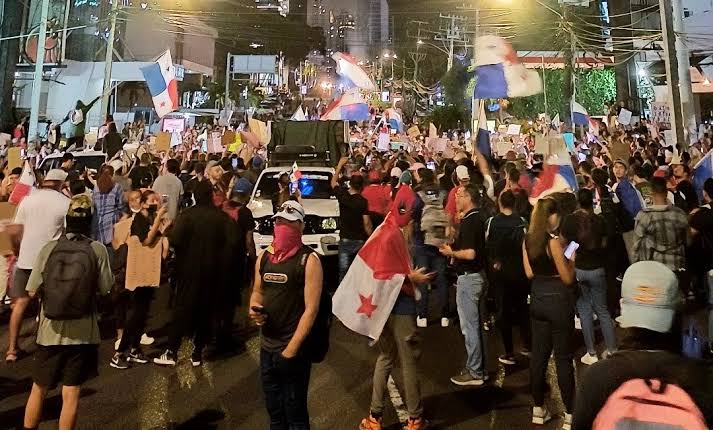
Panama’s President Laurentino Cortizo announced Oct. 29 that he will hold a referendum to determine the fate of a contentious mega-mining contract, after several days of the country’s largest protests in decades. Cortizo also said he would instate a moratorium on any new mining projects in response to the protests, a move approved by a vote of the National Assembly on Nov. 2. The moratorium bill was signed by Cortizo the next day, which was Panama’s independence day. The protests, driven by environmental concerns, were sparked by the National Assembly’s Oct. 20 vote to award an extended concession to Canadian company First Quantum, allowing it to operate the largest open-pit copper mine on the Central American isthmus for another 20 years.
The Cobre Panamá mine, in Colón province, has faced strong opposition from local residents since it opened in 2019, but extension of the contract brought thousands of angry demonstrators to the streets of Panama City. Several people were injured and dozens arrested in clashes between police and protesters, while roads were blockaded throughout the country. The protests reached the doors of the capital’s Marriott Hotel, where regional environment ministers were meeting for the Latin America & the Caribbean Climate Weeksummit. The referendum on the mine’s future is scheduled to take place on Dec. 17. (Jurist, El País, AFP, AFP, Bloomberg)
Photo via Twitter





Panama high court strikes down Canada copper concession
Panama’s Supreme Court unanimously held Nov. 28 that the 20-year concession for the Canadian Cobre Panamá copper mine was unconstitutional. (Jurist)